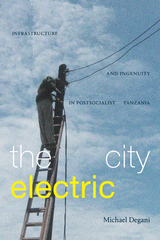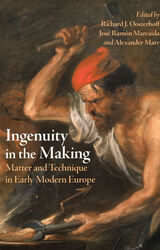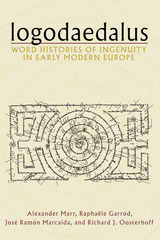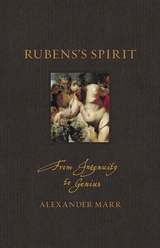

Ingenuity in the Making explores the myriad ways in which ingenuity shaped the experience and conceptualization of materials and their manipulation in early modern Europe. Contributions range widely across the arts and sciences, examining objects and texts, professions and performances, concepts and practices. The book considers subjects such as spirited matter, the conceits of nature, and crafty devices, investigating the ways in which ingenuity acted in and upon the material world through skill and technique. Contributors ask how ingenuity informed the “maker’s knowledge” tradition, where the perilous borderline between the genius of invention and disingenuous fraud was drawn, charting the ambitions of material ingenuity in a rapidly globalizing world.


READERS
Browse our collection.
PUBLISHERS
See BiblioVault's publisher services.
STUDENT SERVICES
Files for college accessibility offices.
UChicago Accessibility Resources
home | accessibility | search | about | contact us
BiblioVault ® 2001 - 2024
The University of Chicago Press









